Macao, defined by its rich heritage of Portuguese and Chinese influences, is a city renowned for its openness and ability to integrate diverse cultures. This multicultural foundation positions Macao as an ideal destination for Muslim travellers seeking new and welcoming experiences.
With the global Muslim travel market projected to reach 168 million international arrivals this year, according to the Mastercard-CrescentRating Global Muslim Travel Index, destinations like Macao are becoming increasingly attractive to Muslim travellers looking for something beyond the conventional.
Macao’s reputation for inclusivity and cultural diversity is at the forefront of its efforts to tap into this growing market. Here’s why the city is quickly becoming a hotspot for Muslim travellers.
A cultural melting pot with Muslim influence
Macao’s history as a busy trading port along the maritime Silk Road in the 16th century helped shape its diverse culture. Muslim traders from places like South Asia, the Middle East, and Southeast Asia had a big impact on the city, bringing not just goods but also their traditions, like food and customs. This has helped make Macao the cultural melting pot it is today.
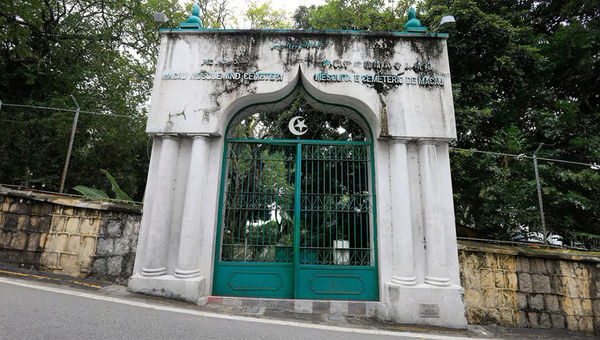
Built in the early 1980s, the Macau Mosque overlooks the reservoir, reflecting the city's multicultural history through its cemetery housing graves of Parsi and Muslim origins. Photo Credit: MGTO
Today, Macao is home to a small but lively Muslim community, with the Macau Mosque serving as an important landmark. Built in the 1980s, the mosque is more than just a place for worship; it is a gathering spot for celebrating important Islamic events like Ramadan and the festivals of Eid ul-Fitr, and Eid ul-Adha. The Islamic Association of Macau organises many of these events, while non-resident Muslim workers add to this vibrant tapestry with their own cultural contributions.
An eye on the Muslim travel market
In recent years, the Macao Government Tourism Office (MGTO) has intensified efforts to attract Muslim travellers, especially from key countries like Indonesia and Malaysia, while also reaching out to the Middle East to bring in more diverse groups of visitors.
Macao’s integrated resorts and hotels are responding to the rising demand for Muslim-friendly services. For instance, MGM Macau has embraced halal tourism by offering cultural sensitivity training to its selected staff. Team members have attended seminars like Halal Tourism in Muslim Minority Countries and Embracing Halal Gastronomy, ensuring they are equipped to cater to the specific needs of Muslim travellers, from meal preparations to prayer room and qibla signage setup.
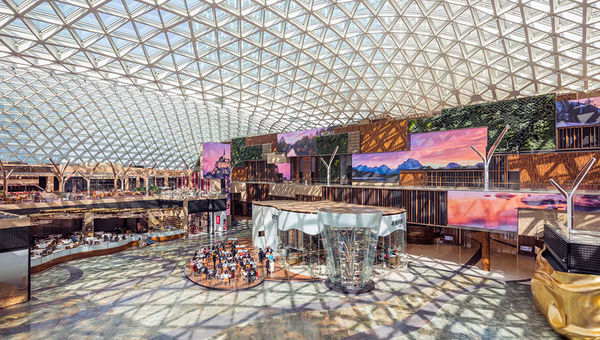
MGM Macau is committed to enhancing its services for Muslim travellers by training staff in halal tourism and accommodating requests for halal meals and prayer room setups. Photo Credit: MGTO
Similarly, Wynn Macau has implemented cultural awareness training for its staff, offering vegetarian and vegan dining options alongside other requests to accommodate Muslim guests. The emphasis on both comfort and cultural respect ensures that Muslim travellers feel welcome and understood.
While fully halal dining options are still developing, hotels within Sands Resorts Macao can offer Muslim-friendly alternatives like no pork, no lard meals upon request. Working with travel agents, Sands can also provide isolated meeting rooms for gender-separated prayer spaces, depending on availability, further enhancing the visitor experience.
At Galaxy Macau, the focus is on outstanding hospitality, with a Forbes five-star team known for accommodating special requests. Their attention to detail ensures that all guests, including Muslim travellers, feel their needs are met.
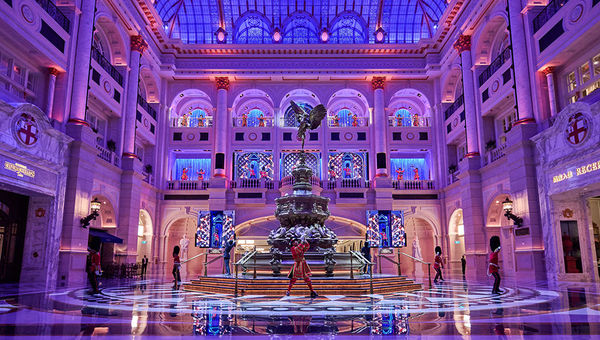
Guests staying at any one of Sands China’s properties can request for its trained staff to accommodate Muslim-friendly requests and gender-separated prayer rooms. Photo Credit: MGTO
Unique experiences for Muslim travellers
One of Macao’s biggest attractions lies in its unique mix of Portuguese and Chinese cultures, which Muslim travellers can discover in exciting ways. A standout example of this blend is the Moorish Barracks, a historical site that showcases the architectural influence of Muslims in the region. Along with Macao’s UNESCO-listed Historic Centre, this site gives visitors a fascinating glimpse into the city’s rich history and heritage.
Macao’s iconic azulejo tiles, a legacy from the Iberian Peninsula with Islamic art influences, are another draw for visitors. Organising tile-painting workshops specifically designed for Muslim guests could provide an engaging way for them to connect with Macao’s artistic heritage while enjoying a hands-on cultural experience.
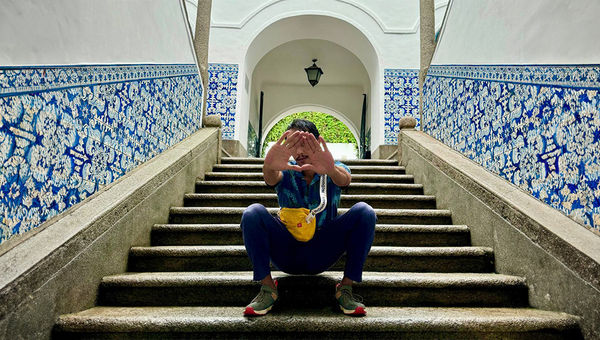
Travellers can capture stunning photos of Macao's streets and courtyards, adorned with beautiful azulejo tiles, which trace their origins to early Islamic tile art from the Iberian Peninsula. Photo Credit: Travel Weekly Asia
For families, Macao offers a variety of attractions that cater to all ages. The Macau Tower, Macau Grand Prix Museum, Macao Giant Panda Pavilion, and Macao Science Centre provide exciting, educational, and family-friendly activities. These destinations offer entertainment and enrichment in a welcoming environment, perfect for Muslim travellers seeking a blend of leisure and culture.
A Muslim-friendly taste of fusion
For Muslim travellers, access to halal food is essential. While Macao’s halal dining scene is still growing, several restaurants cater to these dietary needs. Zam Zam restaurant at the Regency Art Hotel in Taipa is a well-known halal-certified option, serving a range of Indian and Middle Eastern dishes like samosas, butter chicken, and lamb kofta.
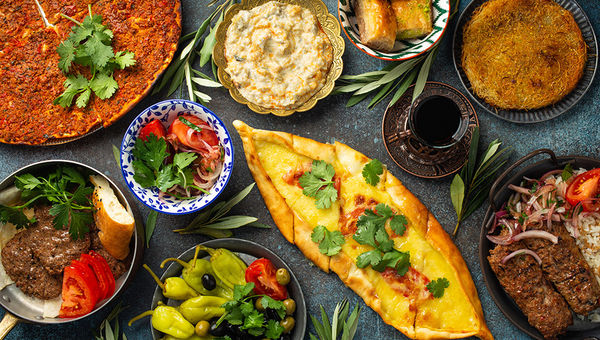
The halal-certified Zam Zam offers a warm, inviting atmosphere reminiscent of Cairo and Calcutta, featuring a mix of Indian and Middle Eastern halal dishes, perfect for groups. Photo Credit: Adobe Stock/somegirl
Other Muslim-friendly options include Lou Lan Islam Restaurant, specialising in Uyghur cuisine that blends Chinese and Middle Eastern flavours in dishes like laghman and pan-fried lamb dumplings, and Indo Pak Curry House, offering a variety of Indian and Pakistani dishes, serves up chicken biryani and curried lamb shank. These restaurants ensure that Muslim travellers can enjoy delicious meals while adhering to their dietary restrictions.
Vegetarian restaurants also offer suitable options. Veggie Macau offers globally inspired dishes with a vegetarian spin like baked Portuguese rice, pastas and quesadillas. For lovers of Chinese flavours, there’s the Harmony Village Vegetarian, near A-Ma Temple, that features traditional Chinese dishes with plant-based alternatives, including crispy spring rolls and fried rice with vegetables.
With its rich cultural heritage, inclusive environment, and growing commitment to accommodating the needs of Muslim travellers, Macao is emerging as a top destination in the Muslim travel market. Click here to discover Macao’s unique cultural experiences for every traveller.
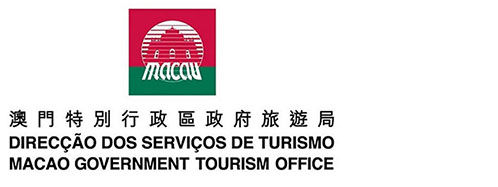
This article is brought to you by Macao Government Tourism Office